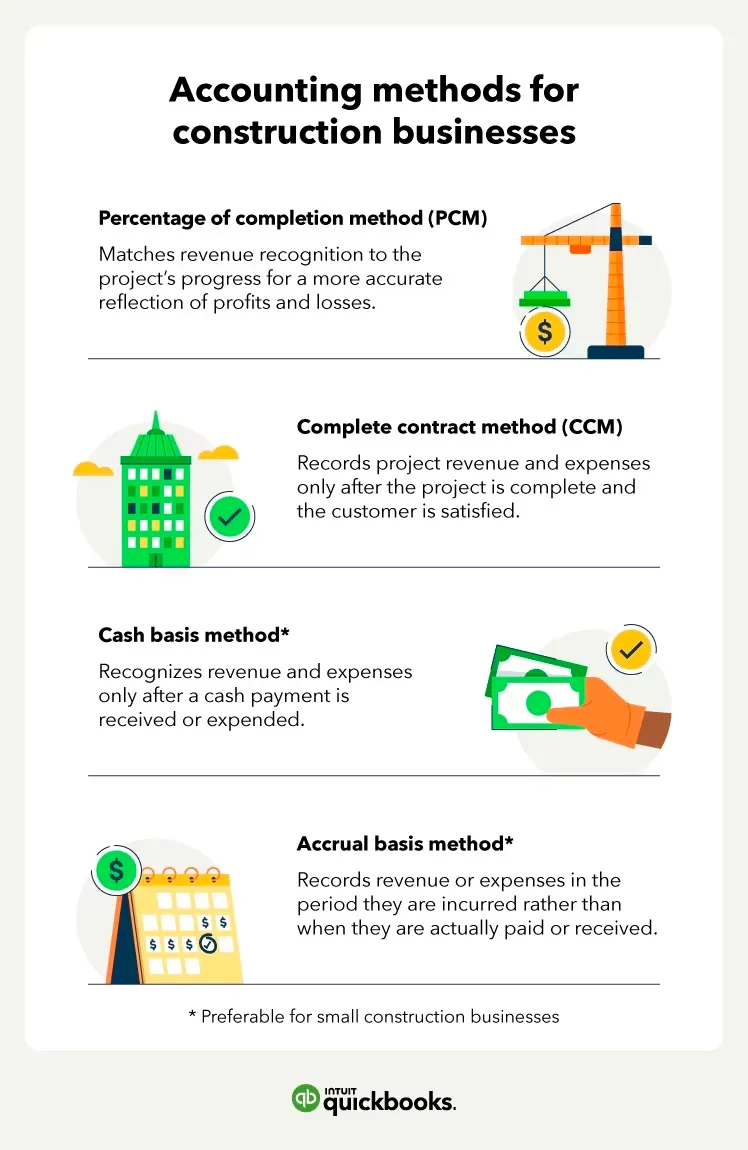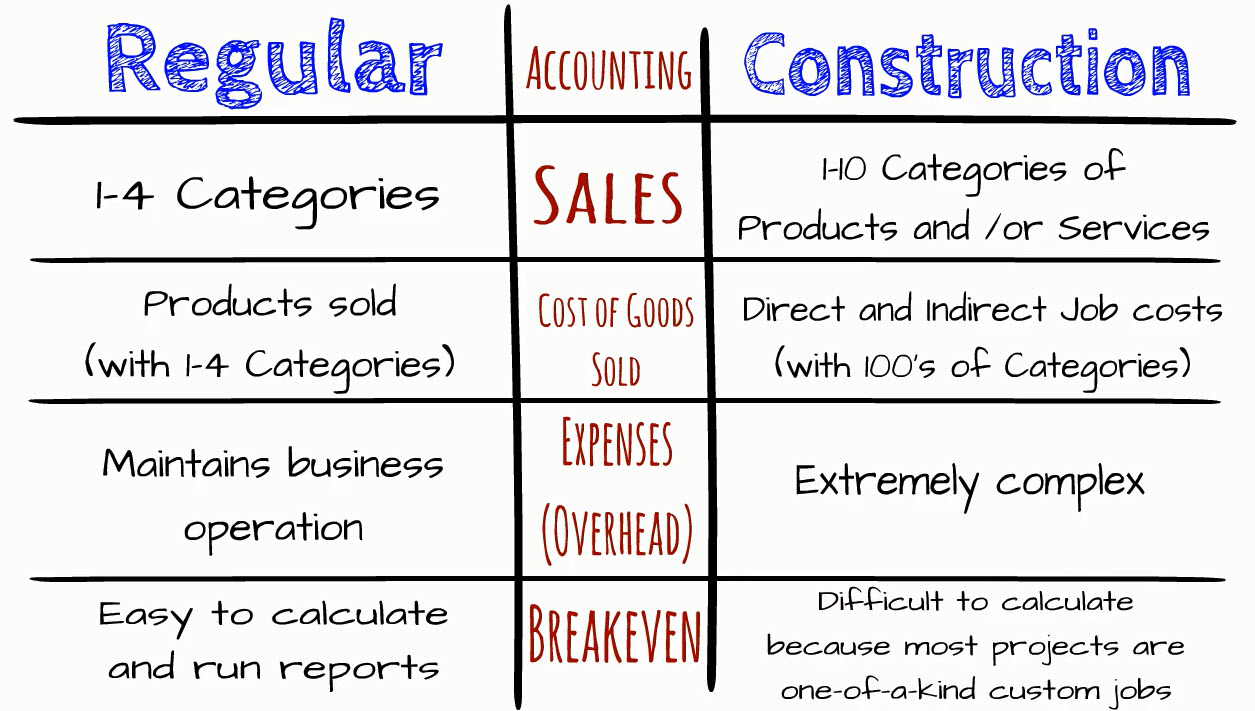Construction Accounting: A Guide to Properly Managing Costs and Financials
Construction Accounting: A Guide to Properly Managing Costs and Financials
Blog Article
The Essential Role of Building Audit in Ensuring Financial Precision
In the facility landscape of building management, the function of building and construction bookkeeping arises as an important element in maintaining financial honesty. By giving a framework for precise monitoring of costs and earnings, this specific accountancy discipline not only help in efficient task oversight however additionally enhances stakeholder confidence.
Importance of Accurate Financial Monitoring
Exact economic monitoring is the foundation of efficient construction accountancy, offering as an important tool for task supervisors and economic officers alike. In the highly dynamic building atmosphere, where budgets can fluctuate and timelines can change, accurate monetary tracking ensures that all monetary tasks are recorded and monitored in genuine time. This practice makes it possible for stakeholders to make enlightened decisions based upon current financial data, thus reducing the threat of overspending and enhancing task profitability.
Moreover, exact economic tracking promotes compliance with regulative needs and market standards. By maintaining detailed documents of expenses, incomes, and task costs, building and construction companies can easily generate required documents during audits and evaluations. This openness not just fosters trust fund among partners and clients yet also minimizes possible lawful problems.

Secret Elements of Building And Construction Accountancy
In the realm of building accounting, several vital parts play a critical role in ensuring financial precision and task success. One of one of the most essential aspects is work costing, which entails tracking all expenditures associated to a details task, including labor, products, and overhead. This procedure permits exact budgeting and projecting, making it possible for building companies to assess success efficiently.
Another essential component is change order management, which deals with modifications to the original contract. Accurate documentation and monitoring of these modifications are important for keeping task budgets and timelines. In addition, monetary reporting plays an important function, offering stakeholders with insights into job efficiency and total monetary wellness.
Capital administration is additionally significant, as it ensures that the company has adequate liquidity to meet its commitments while managing project expenses. Lastly, compliance with regulative demands and tax commitments is a critical aspect of construction bookkeeping, protecting the business from lawful consequences.
Effect on Project Management
Efficient construction audit substantially influences project monitoring by supplying critical monetary information that informs decision-making. Accurate financial records enable job supervisors to track budgets, projection cash money moves, and analyze project earnings in real time. This economic understanding is essential for making informed choices pertaining to source allowance, subcontractor selection, and job scheduling.
Furthermore, construction audit helps with risk monitoring by determining variations in between approximated and actual costs. When task managers can swiftly pinpoint discrepancies, they can carry out rehabilitative measures to mitigate prospective financial losses. This aggressive strategy not just aids in maintaining job timelines yet additionally improves total task performance.
In addition, reliable building and construction bookkeeping supports interaction among stakeholders, consisting of clients, capitalists, and employee. construction accounting construction accounting. Clear economic coverage cultivates trust fund and partnership, making certain that all parties are straightened on task goals and financial assumptions
Ideal Practices for Financial Accuracy
Developing ideal techniques for financial precision within building audit is essential for ensuring job success. A crucial practice is preserving thorough record-keeping. This consists of tracking all deals associated to labor, materials, and overhead costs in real-time, which aids to identify disparities early and makes sure that financial information is always approximately date.

An additional ideal practice is implementing a robust budgeting process. Exact budgeting not only helps in forecasting project prices however additionally provides a benchmark against which actual expenditures can be measured. Regularly comparing actual expenses to budgeted amounts permits for prompt modifications and much better economic control.
In addition, carrying out regular audits is crucial. Internal audits can recognize possible errors or deceptive tasks before they rise, while external audits give an objective testimonial of economic techniques, making certain compliance with market standards.
Educating staff in monetary management and accounting principles is also vital. Knowledgeable personnel are better outfitted to find errors and recognize the value of monetary accuracy in job management.
Last but not least, fostering open interaction in between task managers and monetary groups improves collaboration, making sure that economic decisions are lined up with job goals (construction accounting). These best methods jointly add to a solid structure for economic precision in building bookkeeping
Devices and Software for Building Accounting
Picking the right tools and software for building audit can dramatically simplify economic monitoring processes. The complexity of building and construction jobs demands specialized audit solutions that suit special workflows, task tracking, and monetary coverage needs.
Among the leading software application choices, Sage 300 Construction and Realty (formerly Sage Timberline) provides detailed attributes tailored to building services, consisting of job administration, pay-roll combination, and thorough monetary reporting. copyright Desktop, while much more basic, provides customizable functions that are useful for smaller sized building firms, allowing them to handle invoices, expenditures, and payroll efficiently.
Another noteworthy option is websites Perspective View, which integrates audit with project administration, making real-time data accessible for educated decision-making. Procore also attracts attention by offering a robust platform that combines job monitoring with monetary tools, ensuring all aspects of a project are synchronized.
Cloud-based options like CoConstruct and Buildertrend provide flexibility and remote access, permitting groups to collaborate perfectly, no check my source matter location. Eventually, picking the proper software program pivots on the particular needs of the building company, the dimension of tasks, and budgetary restrictions, making certain that financial accuracy is maintained throughout the job lifecycle.
Final Thought
In conclusion, construction accounting is important for maintaining economic precision throughout a task's lifecycle. Inevitably, the implementation of robust building and construction audit techniques significantly contributes to the overall success and economic integrity of building and construction jobs.
Exact economic monitoring is the backbone of reliable building and construction accountancy, serving as a crucial tool for task supervisors and financial police officers alike. In the very dynamic construction environment, where spending plans can rise and fall and timelines can change, precise economic tracking ensures that all monetary activities are documented and kept track of in actual time. Furthermore, economic reporting plays a vital role, giving stakeholders with understandings right into project efficiency and general monetary wellness.
Accurate monetary records enable task supervisors to track budget plans, forecast cash flows, and analyze project profitability in actual time. Inevitably, the implementation of robust building bookkeeping methods substantially adds to the total success and monetary honesty of construction tasks.
Report this page